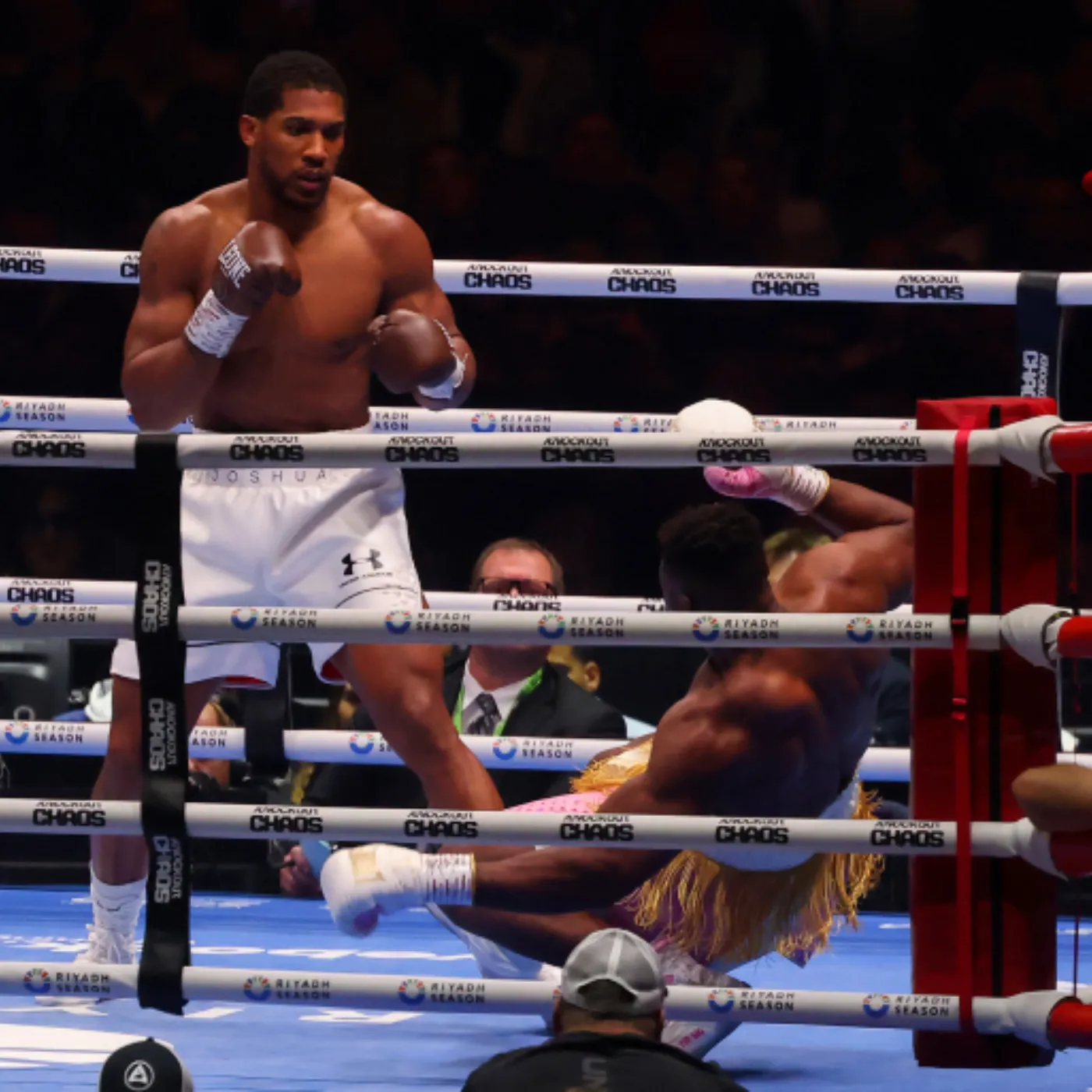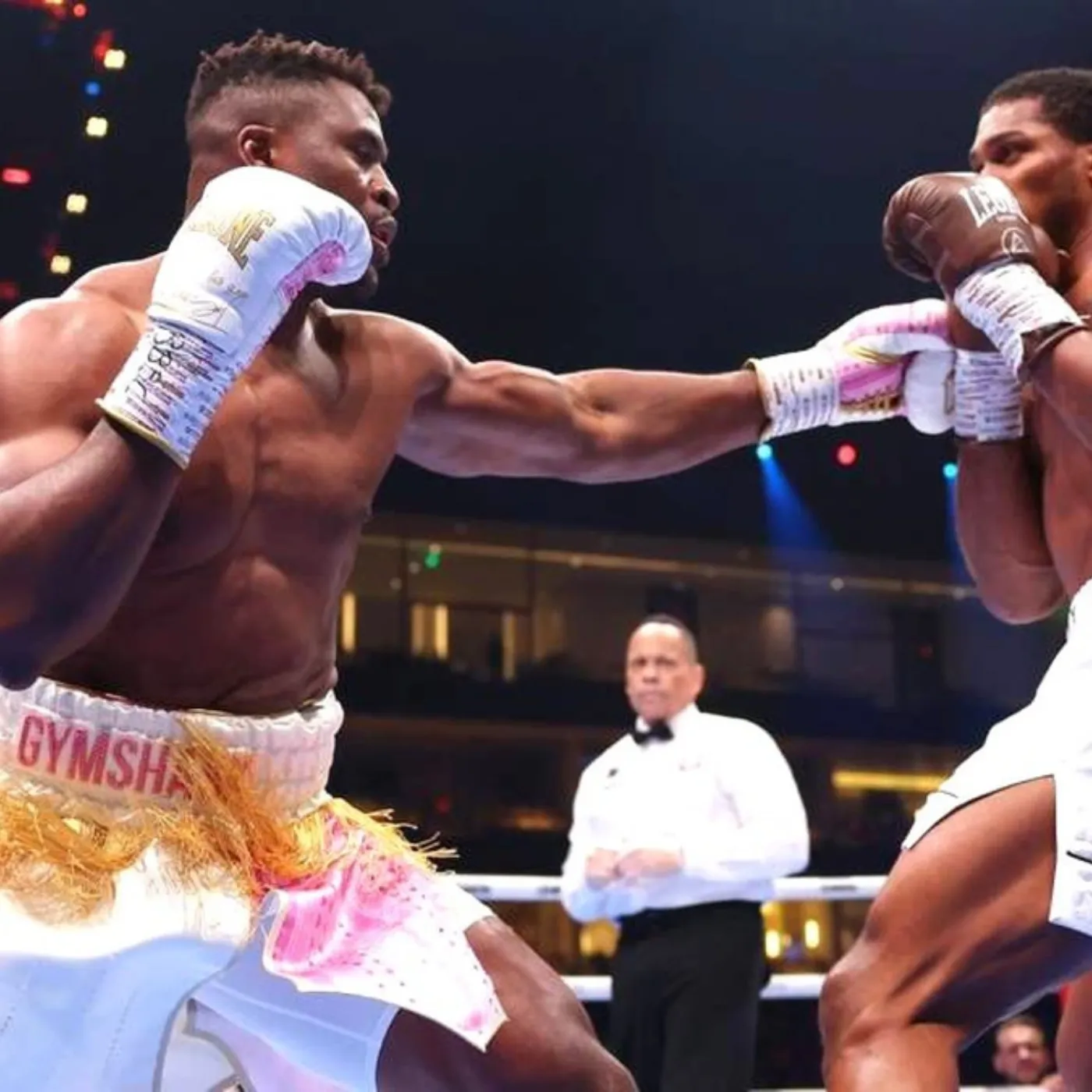Former UFC Champion Rushed to Oxygen After Devastating Knockout by Anthony Joshua
On a dramatic night of boxing, the world witnessed yet another reminder of the unforgiving nature of combat sports when former UFC champion Fabricio Werdum was rushed to receive oxygen following a devastating knockout by boxing heavyweight Anthony Joshua. The knockout not only sent shockwaves through the boxing world but also served as a stark […]

On a dramatic night of boxing, the world witnessed yet another reminder of the unforgiving nature of combat sports when former UFC champion Fabricio Werdum was rushed to receive oxygen following a devastating knockout by boxing heavyweight Anthony Joshua. The knockout not only sent shockwaves through the boxing world but also served as a stark reminder of the potential dangers athletes face in high-stakes competitions. This shocking incident led to widespread discussions on the risks of professional boxing, the physical toll it takes on fighters, and the resilience of athletes like Werdum, who have experienced multiple combat sports disciplines.

Fabricio Werdum’s Transition from MMA to Boxing
Fabricio Werdum, a Brazilian former UFC heavyweight champion, had long been a fixture in mixed martial arts (MMA). Known for his grappling prowess and strong Brazilian Jiu-Jitsu background, Werdum made a name for himself in the UFC by defeating legendary figures such as Fedor Emelianenko and Cain Velasquez. However, after retiring from the UFC in 2020, Werdum expressed interest in pursuing a career in boxing.
While Werdum had achieved considerable success in MMA, transitioning to boxing posed a different set of challenges. Boxing relies on a unique skill set compared to MMA, and Werdum’s striking ability, although effective in the octagon, would need to be honed for the squared circle. Despite these challenges, Werdum’s decision to explore boxing was met with a mixture of skepticism and intrigue from fans and experts alike.
The Fight: Anthony Joshua’s Brutal Knockout
When Werdum faced off against the British heavyweight boxer Anthony Joshua, it was anticipated that the fight would be a clash of two titans from different combat sports. Joshua, known for his explosive power and technical boxing style, was a former unified heavyweight world champion, having held titles like the WBA, IBF, and WBO. His knockout record and dominance in the heavyweight division made him a formidable opponent for anyone, including a decorated MMA champion like Werdum.
As the fight progressed, it became clear that Joshua’s superior boxing skills were too much for Werdum to handle. The Brazilian struggled to close the distance and land meaningful strikes against the faster, more refined boxing techniques of Joshua. The fight culminated in the fourth round when Joshua delivered a crushing knockout punch that left Werdum motionless on the canvas. The blow was clean and precise, a trademark of Joshua’s technical approach to boxing.
Werdum, clearly dazed by the impact, was quickly attended to by medical personnel who rushed into the ring. As the doctors assessed his condition, Werdum was given oxygen and was slowly brought back to consciousness, making it evident just how serious the knockout had been.
The Risks and Dangers of Combat Sports
While knockouts are an expected part of professional boxing and MMA, the brutal nature of combat sports often leads to serious injuries. Knockouts, especially those like the one Werdum suffered at the hands of Joshua, can have long-term effects on an athlete’s health. Concussions, brain trauma, and the risk of chronic traumatic encephalopathy (CTE) are all concerns that professional fighters face when they step into the ring or octagon.
This incident also highlighted the physical toll that boxing can take on fighters, particularly when they face an opponent with such formidable knockout power as Joshua. In a sport where punches are thrown with extreme force and accuracy, the risk of serious injury is ever-present.
Werdum, who had made a successful career in MMA, might not have been accustomed to the type of punishment that a professional boxer like Joshua can dish out. In MMA, fighters can use a range of techniques, including kicks, elbows, and grappling, which, while brutal, might not subject them to the same kind of knockout blows delivered in boxing. Thus, the difference in impact between the two sports became apparent during this match, with Werdum being exposed to the raw power and precision of Joshua’s punches.

A Glimpse into Werdum’s Resilience
Fabricio Werdum’s reaction to the knockout was typical of a seasoned athlete. After being attended to by medical staff, he regained his composure and walked out of the ring under his own power, though visibly shaken by the experience. This resilience is characteristic of many top-level fighters, who, despite the physical punishment they endure, maintain an unyielding mental strength.
In the aftermath of the knockout, Werdum showed no signs of considering retirement from boxing, nor did he express regret for stepping into the ring with Joshua. Instead, he acknowledged the challenges of transitioning to boxing and stated his intent to continue improving his technique, illustrating his determination and commitment to mastering the sport.
His ability to bounce back after such a severe blow also speaks volumes about the mental toughness required in combat sports. The same level of perseverance that helped Werdum achieve great success in MMA now guides him in the pursuit of a career in boxing.









































